Competencies Checklist - American Board of Professional Psychology
advertisement
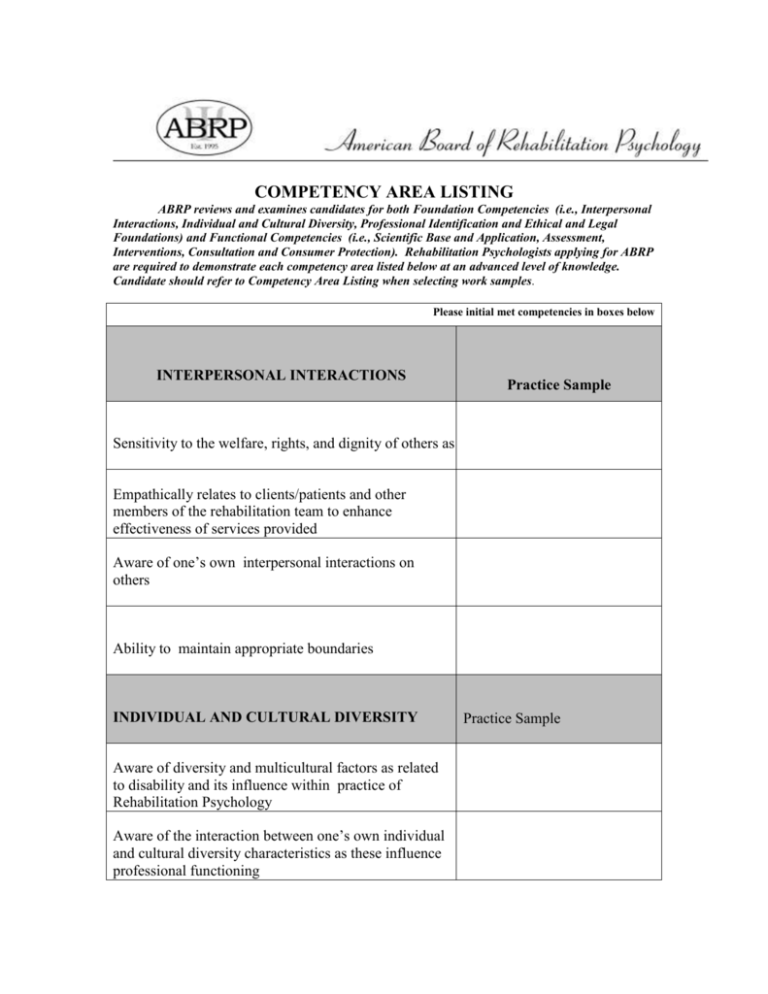
COMPETENCY AREA LISTING ABRP reviews and examines candidates for both Foundation Competencies (i.e., Interpersonal Interactions, Individual and Cultural Diversity, Professional Identification and Ethical and Legal Foundations) and Functional Competencies (i.e., Scientific Base and Application, Assessment, Interventions, Consultation and Consumer Protection). Rehabilitation Psychologists applying for ABRP are required to demonstrate each competency area listed below at an advanced level of knowledge. Candidate should refer to Competency Area Listing when selecting work samples. Please initial met competencies in boxes below INTERPERSONAL INTERACTIONS Practice Sample Sensitivity to the welfare, rights, and dignity of others as a priority of practice Empathically relates to clients/patients and other members of the rehabilitation team to enhance effectiveness of services provided Aware of one’s own interpersonal interactions on others Ability to maintain appropriate boundaries INDIVIDUAL AND CULTURAL DIVERSITY Aware of diversity and multicultural factors as related to disability and its influence within practice of Rehabilitation Psychology Aware of the interaction between one’s own individual and cultural diversity characteristics as these influence professional functioning Practice Sample ETHICAL AND LEGAL FOUNDATIONS Practice Sample Principles and practice standards of the American Psychological Association (APA) Current statutory and state regulatory provisions applicable to the professional practice Issues related to patient confidentiality and privacy (e.g., HIPAA) PROFESSIONAL IDENTIFICATION Participation in professional activities relevant to Rehabilitation Psychology Aware current issues facing the profession and implications to functioning as a Rehabilitation Psychologist Willingness to seek and utilize consultation/supervision when needed or appropriate . Continuing education in the field including CE credits within previous two years. Practice Sample SCIENTIFIC BASE AND APPLICATION Practice Sample Utilizes scientific and evidence based theory to inform one’s practice and professional functioning Critically evaluates scientific and evidenced based theory and research and discuss implications for practice. ASSESSMENT COMPETENCIES Adjustment to disability: patient Adjustment to disability: family Extent and nature of disability and preserved abilities Educational and vocational capacities Personality and emotional adjustment Cognitive evaluation Sexual functioning Decisional capacity Pain Substance use/abuse identification Social and behavioral functioning Practice Samples INTERVENTION COMPETENCIES Practice Sample Individual therapeutic interventions as related to adjustment to disability Family/couples therapeutic interventions as related to adjustment to disability Behavioral management Sexual counseling with disabled populations CONSULTATION (e.g., PT/OT/SLP, MD, RN, Voc, attorney, etc.) Practice Sample Behavioral functioning improvement Cognitive functioning Vocational and/or education considerations Personality and emotional factors Substance abuse identification and management Sexual functioning and disability Practice Sample CONSUMER PROTECTION Aware of and knowledgeable about laws related to ADA Aware of issues related to multicultural and diversity factors in advocating for consumer protection needs
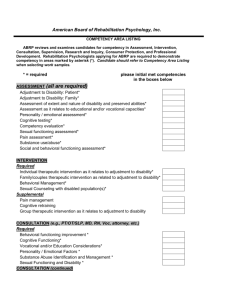
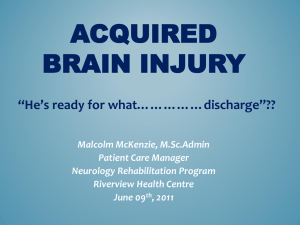
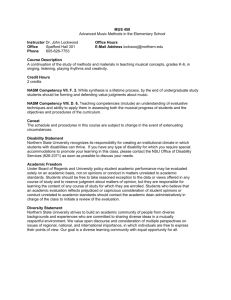


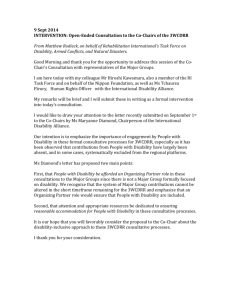



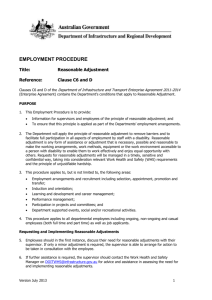
![ICF References[1] - World Confederation for Physical Therapy](http://s3.studylib.net/store/data/007750891_2-05ff3eac3a9de428f31373df99c90f76-300x300.png)